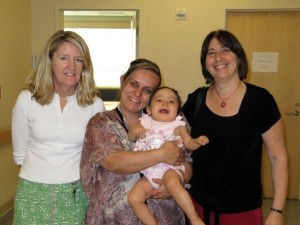 Sequestration is a term to describe the massive across-the-board cuts that the federal government will impose on all non-defense spending starting in January 2013 if Congress does not act to stop it. This was a result of both parties not agreeing on a plan to cut the federal deficit.
Sequestration is a term to describe the massive across-the-board cuts that the federal government will impose on all non-defense spending starting in January 2013 if Congress does not act to stop it. This was a result of both parties not agreeing on a plan to cut the federal deficit.
What does this mean for those of us in the rare disease community?
The National Institutes of Health (NIH) is one of a handful of government agencies which conduct research and provide opportunities to scientists, academia and biotech companies to discover, test and implement new treatments and cures for rare diseases affecting over 30 million people in the United States alone, approximately half of which are children. If sequestration comes to fruition, the NIH’s budget is estimated to be cut by an astounding $2.3 billion.
This would eliminate thousands of grant opportunities provided to researchers who are dedicated to finding treatments and cures for rare diseases. This could also jeopardize a number of important studies conducted by the NIH’s National Human Genome Research Institute whose mission is to map the human genome and to apply genome technologies to study genetic components of complex disorders and rare diseases.

Hannah at her NIH visit in July 2010 with Dr Ellen Sidransky, Dr. Ozlem Goker-Alpan, and Catherine Groden N.P.
These activities are important in learning more about rare diseases to aid in finding treatments and, ultimately, cures for these conditions. My daughter, Hannah, was a patient of the institute and we traveled three times to the NIH campus in Bethesda, MD in an effort to learn more about her rare condition. Hannah participated in a Natural History Study for Neuronopathic Gaucher’s Disease Type 2/3 which will offer researchers and caregivers clues on how this disease progresses and provide them with the information they need to properly treat patients suffering from this disease as well as to help find a cure.
Dramatically reducing the NIH budget as mandated under sequestration will have an immediate effect on rare disease research. Millions of children who suffer from rare diseases will not benefit from less research and development resulting from massive cuts at the NIH.
It is imperative for all patient and parent advocates to contact our representatives to urge them to come to a resolution to stop the sequestration process.